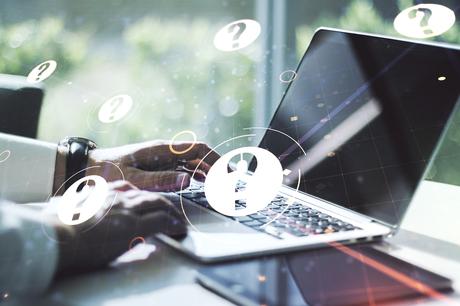Laptops have become an indispensable part of our lives. From work to entertainment, we rely on these portable devices for almost everything. However, like any electronic device, laptops are prone to various problems that can hinder their performance and functionality. In this article, we will explore the main problems that can plague laptops and how to address them.

Credit: www.reddit.com
Common Laptop Problems
Before delving into the main issues, let’s take a look at some common problems that laptop users may encounter:
- Slow Performance
- Overheating
- Battery Drainage
- Blue Screen of Death (BSOD)
- Wi-Fi Connectivity Problems
- Virus and Malware Infections
- Hardware Failures
- Software Crashes
Main Problems of Laptops
Now, let’s focus on the main problems that contribute to the overall functionality and performance issues of laptops:
Problem Cause Solution
Slow Performance Software bloat, insufficient RAM, or outdated hardware Regular system maintenance, upgrade hardware if necessary
Overheating Malfunctioning fan, clogged air vents Clean air vents, use cooling pads, and avoid using laptops on soft surfaces
Battery Drainage Aging battery, power-hungry applications Replace battery, close unnecessary applications, adjust power settings
Blue Screen of Death (BSOD) Hardware or software issues Update drivers, repair corrupted system files, or seek professional help
Wi-Fi Connectivity Problems Interference, outdated drivers Position laptop closer to the router, update Wi-Fi drivers
Virus and Malware Infections Unsecured online activities, malicious downloads Install reliable antivirus software, avoid suspicious websites, and files
Hardware Failures Component wear and tear, manufacturing defects Consult with technicians, consider hardware replacements
Software Crashes Compatibility issues, corrupted files Reset software settings, update applications, or reinstall problematic software
Diagnosing and Fixing Laptop Problems
When encountering issues with your laptop, it’s essential to diagnose and address the problems promptly. Here are several tips on how to fix common laptop problems:
- Perform Basic Troubleshooting: Remove all external devices and attempt to power on the laptop to identify if the issue persists.
- Check for Display Problems: Listen for laptop activity or check for indicator lights to discern potential display issues.
- Monitor Battery and Charging: Watch for irregular battery behavior, such as quick drainage or failure to charge.
- Keep an Eye on Performance: Observe slow program launch and unresponsiveness, which may signal hardware or software issues.
- Temperature Control: Pay attention to heightened temperatures and noisy fan operations, indicating possible overheating.
- Network Connectivity: Address issues with Wi-Fi or Bluetooth, such as intermittent connections or complete failures.
- Software and Hardware Testing: Run diagnostic tests to identify potential software or hardware failures.
- Consult Professionals: Seek assistance from certified technicians or manufacturer support for unresolved problems.
Preventing Laptop Failures
While it’s crucial to address existing laptop problems, preventing future failures is equally important. Follow these tips to minimize the risk of encountering common laptop issues:
- Regular Maintenance: Conduct routine cleaning and software updates to keep the system in optimal condition.
- Proper Ventilation: Ensure sufficient airflow around the laptop to prevent overheating and component damage.
- Secure User Practices: Be cautious of online activities, downloads, and email attachments to avoid malware infections.
- Optimized Power Management: Adjust power settings and use energy-efficient practices to prolong battery life and reduce drainage issues.
- Hardware Quality Assurance: Invest in reputable brands and reliable laptop models to mitigate potential hardware failures.

Credit: scientific-publishing.webshop.elsevier.com
Frequently Asked Questions For What Is The Main Problem Of Laptop?
What Are The Most Common Laptop Problems?
Common laptop problems include slow performance, overheating, battery drainage, blue screen of death (BSOD), Wi-Fi connectivity issues, virus and malware infections, hardware failures, and software crashes. To fix laptop problems, remove all devices and try turning it on, check air vents and noise after pressing the power button, and look for signs of activity inside the laptop.
Prevent laptop failure by addressing hardware malfunctions, software bugs, power outages, network issues, and human errors. Red flags indicating laptop failure include battery not charging, unexpected shutdowns, slow program performance, overheating, noisy fans, connectivity issues, and unresponsive keyboard.
How Do I Fix My Laptop Problem?
To fix your laptop problem, start by removing all devices connected to it, then try turning it on. If you’re experiencing display issues, check for any air vents and listen for noises after pressing the power button. If you hear activity inside the laptop (fans running, lights blinking), there might be a display problem.
For common laptop issues and their solutions, visit HP. com.
What Causes Laptop Failure?
Laptop failure can result from various factors like hardware malfunctions, software bugs, power outages, network issues, or human errors.
How Do I Know If My Laptop Is Failing?
To determine if your laptop is failing, watch out for these signs: unexpected shutdowns, slow performance, overheating, unresponsive keyboard, noisy fan, and connection issues. If experiencing these issues, seek professional help and consider diagnostic tests for hardware and software problems.
Conclusion
While laptops offer exceptional convenience, they are susceptible to a range of common problems that can affect their usability and performance. By understanding these issues and employing proactive measures, laptop users can effectively address and prevent the main problems associated with their devices. Remember, staying informed and attentive to your laptop’s behavior is key to ensuring its longevity and reliable functionality.
